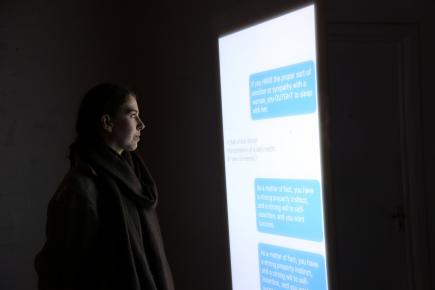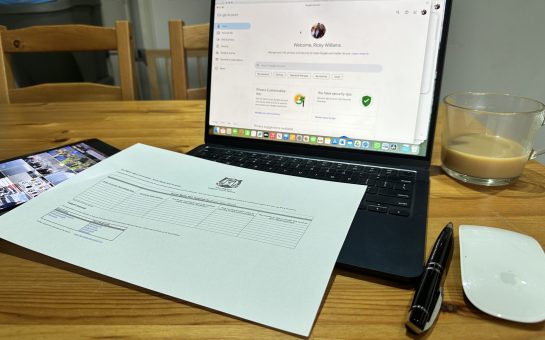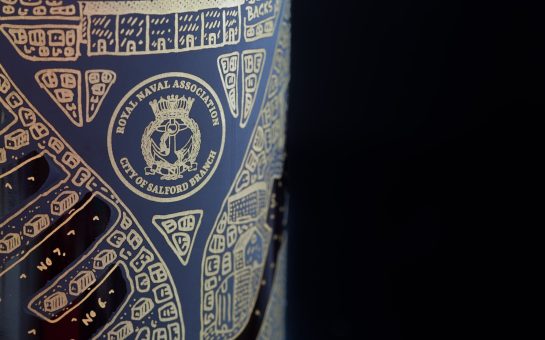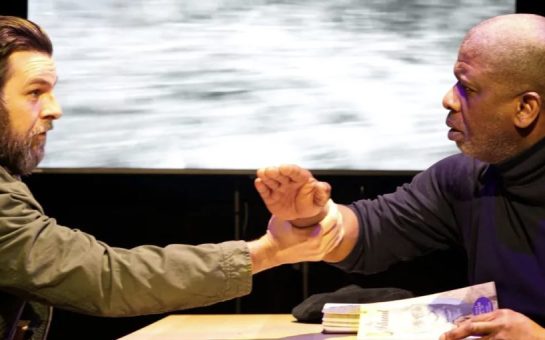Developments in technology are having a more profound impact than ever on people’s live and the way we communicate with each other.
Yet whether these developments are always beneficial remains a controversial issue.
Humans Being Digital, an exhibition at the Lowry in Salford, both challenges and embraces changes brought about by the digital age.
MM spoke to two of the artists, Libby Heaney and Thom Kubli; as well curator of the exhibition Lucy Dusgate about the impact technology is having on human development and the way we communicate.
Thom’s piece Black Hole Horizon uses speakers to create bubbles when they omit noise. Something he says is a reflection of how immaterial objects such as the internet can produce material results.
The artist said that in the modern age a lot of things were inspired by the industrial revolution but now they are inspired by technical means.
“It’s a revelation, there is more access to things you can do, access to social networks and things can be created more easily,” he said.
Although the artist agrees that greater access to social networks makes opinions more accessible and often plays a role in enforcing democracy he is sceptical about the way they are used to advertise what he describes as whole range of opinions- both positive and negative.
He added: “There is lot of collective psychology that plays a role in what is considered to be true or not, a lot of data is used for manipulating opinion.”
Following the Manchester Arena attacks in May 2017 there was a surge of online hate crime perpetuated by social media.
Libby, whose work also features in the exhibition, shares Thom’s view that the technology is often used in a negative way.
“The internet started off as a utopian palace now it’s full of corporations mining us for our data,” she said.
Libby’s feature Lady Chatterley’s Tinderbot explores how dating apps, are changing the way people converse with one another in the world of dating.

TINDER-INSPIRED: Libby’s piece explores how technology changes the way people interact
She was inspired to create the piece because of how technologies change the way people interact with each other.
“The media changes human behaviour in love, dating and sex, human behaviour is defined more by preconceptions,” she explained.
“People using Tinder and all other dating apps focus on looks. They look for the perfect relationships but less in a human sense, they look at people more like commodities.
“Using them can be quite demoralising, if you’re using them and it’s not working for you. For some people it can be quite polarising while other people feel it’s gives them more choice of people,” she added.
Lucy, who curated the exhibition, also highlights that digital advancements have the power to build on people’s insecurities.
“We have a culture that is built on approval and rejection so digitalisation has the potential to make us very volatile,” she said.
Dating apps and social media such as Facebook and Instagram she feels have the power to put people in an insecure emotional space.
“It can be hard to navigate through rejection. We have to be wary of amplifying people’s insecurities,” she added.
With digital technologies becoming integrated into our lives more than ever she says that we have lost some of our ability to analyse and reflect on information.
“People are much more responsive that reflective. It used to be that information was power but because there is much more information it’s about context of information, it’s about understanding what is relevant to use,” she explained.
However although she believes there is a somewhat cultural shift from face-to-face communication to communicating over screens she thinks that technology has the ability to produce great outcomes in the way people communicate and use information.
She said: “We haven’t realised the impact of that full communication, certain technologies we have but we haven’t used to their full potential.
“Things such as artificial intelligence can be used for home help or companions for older people, as enablers.
“One to one contact is still important but digitalisation allows us to cast a net, that’s the joy we can communicate further.”
“People have to be comfortable with change because you can’t stop it.”
Humans Being Digital runs until February 25. For more information on the exhibition and artists click here.



